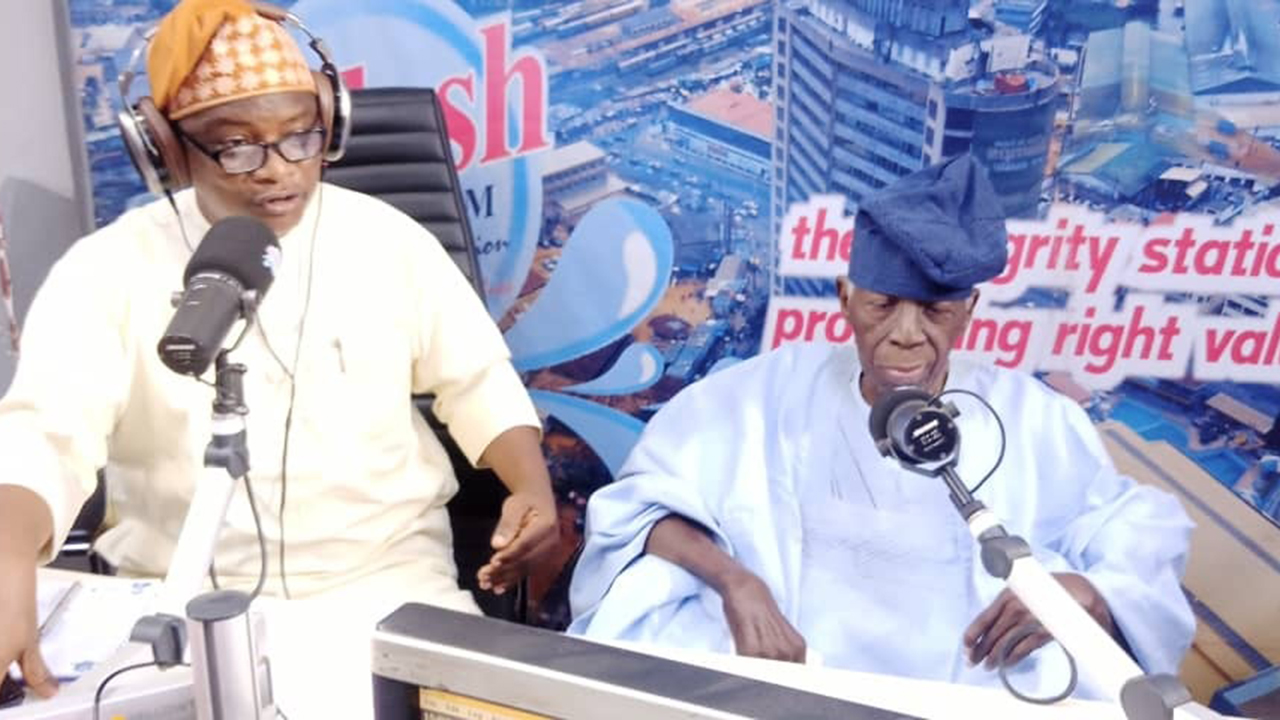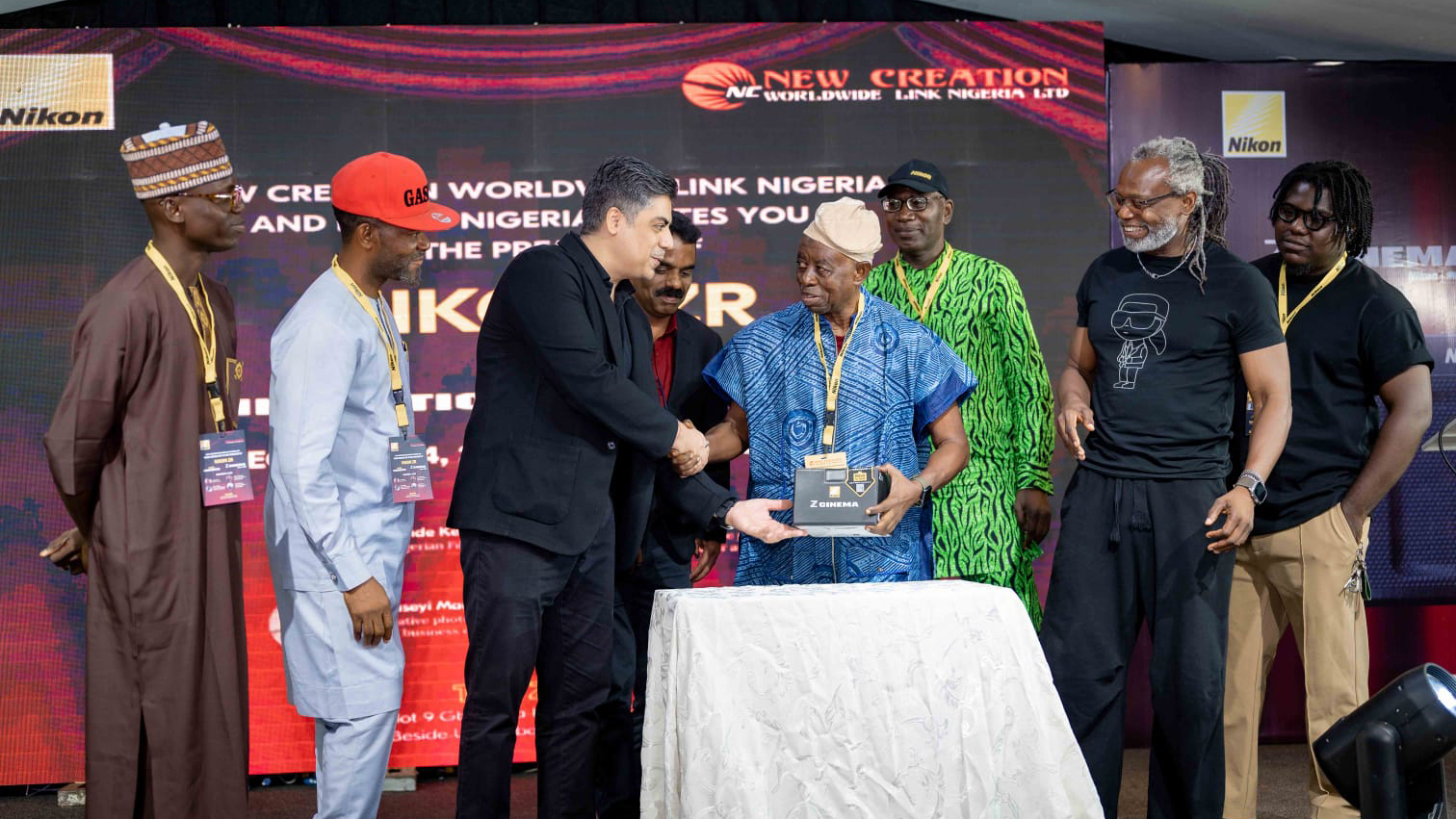
Before 2007, the Ibadan media space, particularly the radio arm, was dominated by the government-owned stations such as Oluyole and Premier FM. Oluyole FM was known as Radio O.Y.O. 2 until 2009, when the name was changed by the former governor, the late Otunba Adebayo Alao-Akala. The station hit the airwaves in 1972 as a companion to an AM service.
Though the Federal Radio Corporation of Nigeria (FRCN) had been in existence in Ibadan, Premier 93.5 FM was commissioned by the late First Lady of Nigeria, Chief Stella Obasanjo, on October 30, 2001. It was berthed as a result of the Olusegun Obasanjo-led Federal Government’s objective of setting up 32 FM stations across the country.
All along, only government stations had been sources of listening to radio. However, the city’s media firmament changed in 2007, when the Chief Adebayo Akande-owned radio outfit, Splash 105.5 FM, began broadcasting.
Shortly after Splash 105.5FM began to enjoy the monopoly of being the premier private radio station, Space 90.1 FM joined the league. It is the first tri-lingual radio station in Nigeria owned by Otunba Deji Osibogun, an Ijebu chief.
Since then, many radio stations have joined the Ibadan market. As at the last count, there are about 50 stations in the city operating at different levels – commercial, community and business.
The stations include, Lead City University Campus Radio 89.1 FM, Star 91.5 FM, Impact Business Radio (IBR 92.5 FM), Royal Root 92.9 FM, Raypower 95.1 FM, Agidigbo 88.7 FM, Thirty-Two FM 94.9, Lagelu 96.3 FM, Jamz 100.1 FM, Oluyole 98.4 FM, Amuludun 99.1 FM, Diamond 101.1 FM, and Splash 105.5 FM.
They also include, Petals 102.3 FM, Fresh 105.9 FM, Lead Radio 106.3, Noble 107.1 FM, Pensioners 106.7 FM, Blast 98.3 FM, Life 107.5 FM, Solutions 93.9 FM, Crest 91.1 FM, Omoluabi 87.7 FM, Prince 89.7 FM, Honor 103. 5 FM and Success 105.3FM.
Others are Vintage 93.7 FM, Soul 95.7 FM, Correct 99.5 FM, YES 101.7 FM, Medal 99.9FM, IITA Radio 88.5FM, Wells 89.3 FM, Ilaji 91.9 FM, Almond 94.3 FM, Iri 96.1 FM, Pep 100.3FM, Melody 100.7 FM, JND101.5 FM, Reiz 101.9 FM, Tiwantiwa Radio 106.5 FM, Adamimogo 105.1 FM, I-flier 103.3 FM, and so on.
What are the attractions in Ibadan, leading to the influx of radio stations?
Scholars, veterans, practitioners and investors in the media landscape attribute the development to the huge population, proximity to Lagos, historical importance of Ibadan and a host of other reasons.
The scholars and stakeholders include a former General Manager of the Nigerian Television Authority (NTA) Ibadan and former Chairman of Osun State Broadcasting Corporation (OSBC), Dr. Yemi Farounbi.
The former ambassador said: “First is the population of Ibadan. Second is that Ibadan used to be the intellectual and arts capital of Nigeria. Third, many who have the clout to access the licences are Ibadan-based. NBC does not appear to have any plan or designed template for allocation of licences, beyond availability of frequencies.”
Similarly, a former acting Rector and former Dean of School of Communication and Business Studies of The Polytechnic, Ibadan, Femi Ipadeola, said Ibadan enjoys a vantage position after Lagos for many reasons such as the ease of obtaining licences for the Oyo State capital.
The former anchor with Channels Television and pioneer Head of Impact Africa Television (IATV), said: “As a professional, trainer, scholar and investor in the media, I am aware that in the Southern part of Nigeria, after Lagos, Ibadan is the next populated city. It has a huge population. It is ten times easier to apply for licences outside Lagos. Outside Lagos, you will still want to be close to Lagos, which will be Ogun and Oyo states.
“Also, there is a concentration of higher institutions in Ibadan. In my opinion, I may be wrong though, Ibadan has the largest concentration of research institutions and centres in the country. I can’t think of any location in Nigeria that has the highest number of universities, research institutes, polytechnics, colleges of education and other monotechnics.
“Added to that is budding professionals, even though most of them have their head offices in Abuja and Lagos, almost all major professional bodies have their base in Ibadan. Ibadan boasts of professionals in large quantities even more than Port Harcourt. Again, the historical recognition of Ibadan as a culture centre. In the 50s, 60s, up to 70s, Ibadan was Nigeria’s cultural centre. Ibadan was the industrial hub of Nigeria, though it was overtaken by other parts of the country.”
To Dr. Bayo Busari, Senior Lecturer, Department of Mass Communication and Media Technology, Lead City University, Ibadan and a public affairs analyst, “The attraction to Ibadan is due to the saturation of the Lagos/Ogun axis and probably due to the low tax regime as well as other financial burdens on the operational costs of existing radio stations.”
Toeing the same line, the Acting Head of Department of Mass Communication, Precious Cornerstone University (PCU), Ibadan, Oluwole Ayinla, said:” Ibadan is the largest city in Nigeria. It hosts headquarters of some religious institutions. It has about five private universities with other public institutions. Ibadan has a conducive environment for business. Cost of living is not as high as that of Lagos and Abuja. Also, Ibadan has numerous fee- paying private schools. All these attract these radio stations to Ibadan.”
Also speaking, a media entrepreneur and Special Assistant to Governor Seyi Makinde on Communications, Dayo Ogunbowale, said Oyo State offers a huge audience with a massive population of urban settlers, adding, “Providing quality content should naturally attract the right attention, inclusive of steady revenue.”
Adding his voice to the issue, a practising journalist, Akin Aboluwade, said Ibadan as the political headquarters of the Southwest with business relevance and close proximity to Lagos, Nigeria’s commercial nerve-centre, has what it takes to attract the media and any other venture for that matter.
Of a truth, the establishment of any business entity is an inflow and injection into the economy with its multiplier impacts such as employment generation, knowledge transfer, improved manpower in form of human capital development, more revenue to government and returns to the owners.
However, many questions are cropping up – are the 50 radio stations actually adding value in terms of human capital development? Is the quality of broadcast topnotch? Are they viable and sustainable? Can the Ibadan economy support the stations and make them afloat?
The questions become apt in the face of recent happenings in the industry as some of them are finding it difficult to weather the economic storm,leading to operations shut-down. By the time of writing this report, some stations are off air. Those in this category are Space 90.1 FM, Beat 97.9 FM, Naija 102.7 FM, Kings 103.9 FM, and Inspiration 100.5 FM.
Speaking on the development, an avid radio listener, Dr Oladotun Oluwasanya, said the influx is meant to be a blessing but the proliferation seems to be outpacing the economy of the state which is turning out to be a strain on the sustainability of some of the media houses and the economy of the state at large.
On the viability of the stations, Oluwasanya said: “I see a station like Fresh FM as highly sustainable owing to its rich package going by the line-up of its weekly programmes and the calibre of presenters / OAPs. Same can also apply to Splash.
“However, stations like Pensioners FM, Raypower do not really have the content and package but the source of funding for the stations will somewhat keep them running for a long time. Beat FM and Raypower have strong bases in Lagos from where resources can flow to sustain the stations.”
Lamenting that the proliferation is not good for the industry, Femi Ipadeola, said it is watering down standards and reduces the value attached to radio and professionals in the industry.
Ipadeola said: “They can’t even sustain 25 per cent of those stations. It is evident. The proliferation began about 12 years ago. It started slowly in 2007 and by 2015, it got to a high level. If you look at those radio stations that came then, how many of them are still operating and operational?”
Nonetheless, the communication lecturer brought another perspective to it, saying with his observation through interactions with some media owners, many of them were established for other purposes.
“Maybe philanthropy, ego, political clout, some may just want to make a statement.
Sometimes, some business people may put money into particular ventures not because they don’t know it will not yield profits but they understand that business can lead them to other things that can give them money”, Ipadeola explained.
In his analysis, Farounbi said that, ordinarily, an increase in the number of radio stations should be a matter of great joy, stressing, “the increase should provide diversity and plurality of options and choices. Unfortunately this is not so as most of the stations sound alike with no unique and distinctive content. The stations have become monotonous repetition or copy of the few outstanding stations. I believe this is because the NBC has not perhaps considered the content as an important pillar in the survival of the stations. So, we have many stations, but sounding alike and offering listeners no diversity.
“Also, the population of Ibadan can sustain the number of stations. But certainly the economy of Ibadan cannot sustain the number of stations that are dependent on advertising revenue. The industries are not there. Many of them like glass, Exide battery, Atlantic carpet and so on, have folded up. The few businesses like breweries, soft drinks, and banks are headquartered in Lagos. Their location in Ibadan doesn’t give any advantage to Ibadan-based radio stations, since the advertising of the products are nationally designed.”
Ogunbowale, Governor Makinde’s aide, said: “All these said and done, it will be foolhardy for anyone to assume that the business environment in Lagos is comparable with that of Ibadan. Not true. “I believe a good portion of the about 50 radio stations will struggle to pay salaries in the next six months.”
The acting HOD of PCU, Oluwole Ayinla also said the economy of Ibadan cannot support this influx because there are few industries in Ibadan.
However, Dr. Busari said the economy of Oyo State may not be so relevant to support the presence of the radio stations due to the fact that the stations do not necessarily have to rely directly on the state’s economy.
“The operational market for the radio stations is more global since advertisers abound beyond the state,” he added. Speaking on how the media houses can remain afloat, Farounbi called on the National Broadcasting Commission (NBC) to begin to lay greater emphasis on economical viability as an important criterion in granting of licences, while Ipadeola called for collaboration and sharing of infrastructure such as buildings, and energy, in order to reduce operational cost and overhead. Ogunbowale, on his part, called for quality broadcasting.
On the whole, the influx of the media houses to the political capital of Yorubaland is advantageous as it provides ample opportunities and jobs for young broadcasters and increases government revenue. Against this backdrop, it is expedient for the managers and owners of the outfits to embrace creativity, adaptability, ingenuity and sustainability principles to remain afloat.






